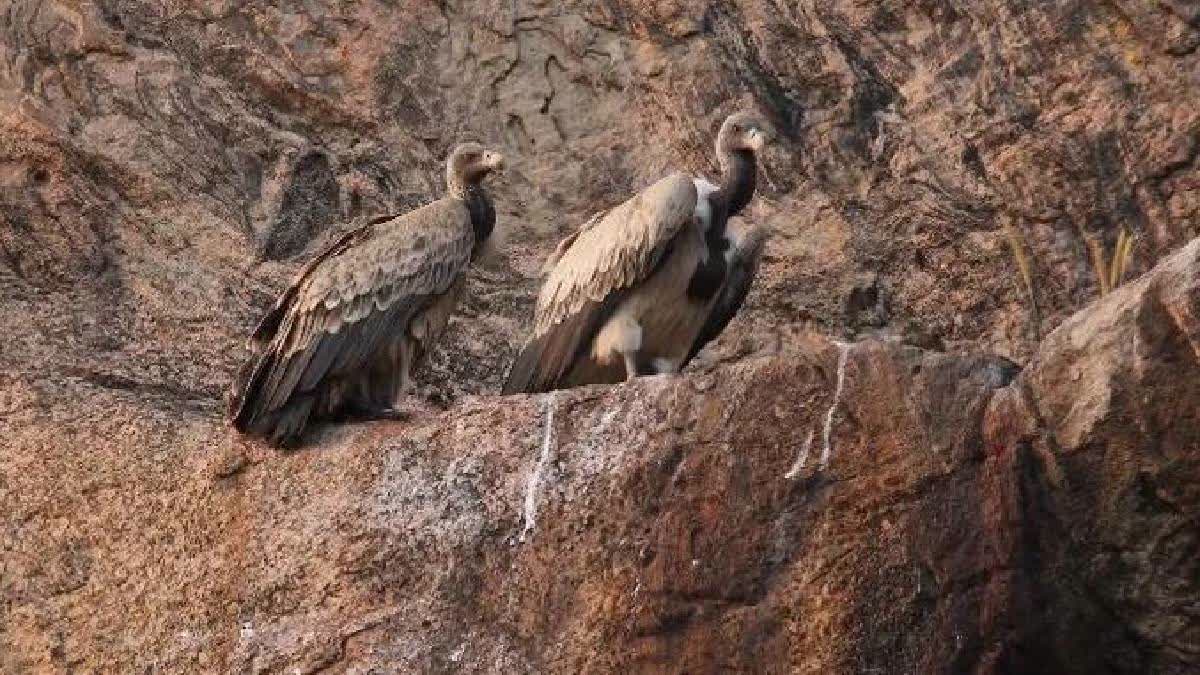Sagar: With the dwindling number of scavengers causing a major concern for the ecosystem, Madhya Pradesh's Nauradehi Sanctuary has come up with a unique concept of 'Vulture Restaurant' where vulture-safe food will be made available.
The move comes after it was identified that vultures were dying after consuming cattle injected with banned drugs. Effort has been initiated to maintain a regular count of the vultures likewise tigers and other animals.
In order to arrange vulture-safe food, the management of the sanctuary has started contacting cow shelters where harmful medicines are not ingested into cattle. Also, it will be ensured so that vultures do not wander in search of food and manage to find safe food inside the sanctuary itself.
Deputy Director Dr AA Ansari said arrangements are on to open a 'Vulture Restaurant' in Nauradehi Sanctuary, which has been officially named as Veerangna Durgavati Tiger Reserve, and stocks from cow shelters would be hoarded here for the scavengers.
"Vulture conservation is important for protecting and reviving their declining population since they act as nature's garbage collector and help in keeping the environment clean of waste. Consuming dead cattle, vultures help to destroy the microorganisms originating from the decomposed bodies and thereby reduce the risk of diseases for other animals and humans," Ansari said.
According to various studies, drugs namely Diclofenac, Ketoprofen, Flunixin, Aceclofenac, Nimesulide and Phenylbutazone used in cattle are harmful for vultures. Diclofenac was banned by the government in 2006 and Ketoprofen and Aseclofenac in 2023 but they are still available in the market and used by cattle farmers.
Environment experts have repeatedly called for a complete ban on all drugs that are harmful for vultures.
Read more




